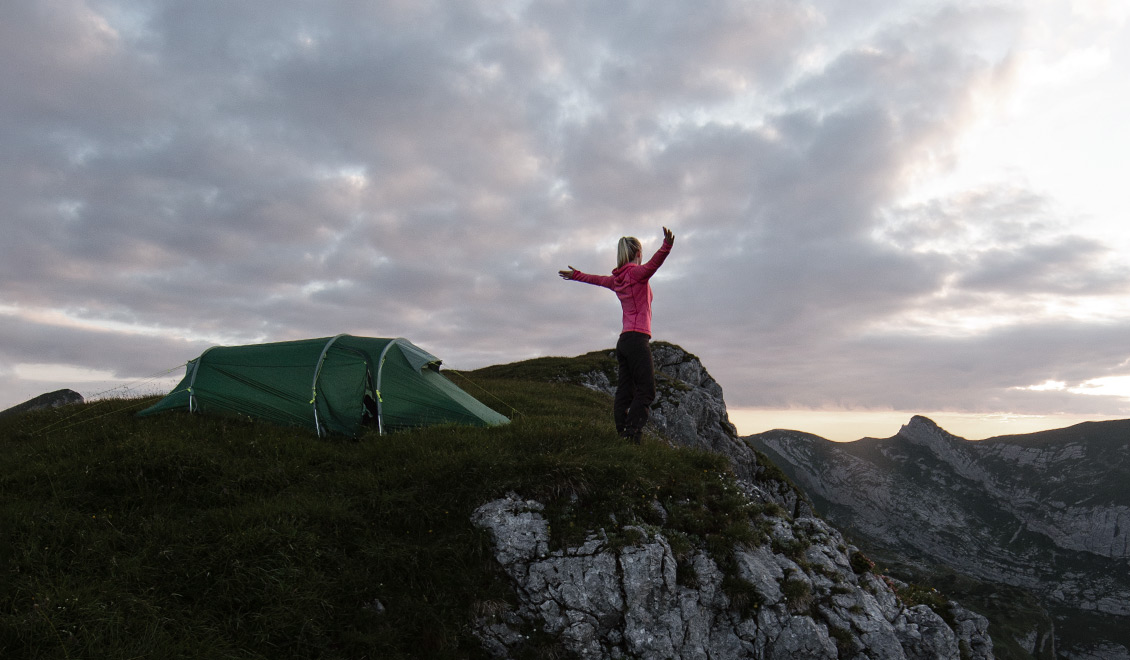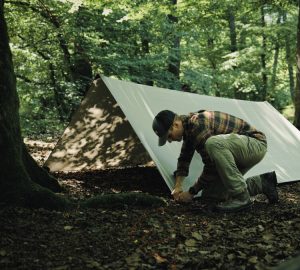Is wild camping allowed in Germany? For many outdoor fans, spending the night in a tent in the great outdoors is the crowning glory of a successful tour. Unfortunately, wild campers are not too welcome and in many places there are even severe penalties. We explain to you how and where wild camping in Germany still works.
What is secured in Scandinavia by the “Everyman’s Right”, remains in Germany mostly a romantic dream: spending the night in the tent outside of official campsites.
In Germany, the individual federal states are responsible for the rules on wild camping. They each have their own nature conservation and forest laws. This makes the legal basis rather confusing. In nature reserves, however, overnight camping is generally prohibited. On private land and in private forests you need the permission of the owner.
In Germany, however, there is the so-called right of access. This allows everyone to relax in the open countryside. In principle, this right also includes spending the night – but not wild camping. But what does that mean?
Camping vs. bivouacking
Not all wild camping is the same. This is shown by the difference between camping and bivouacking. While spending the night in a tent is prohibited almost everywhere in Germany outside of official campgrounds, bivouacking is generally allowed. This is sleeping without a tent, i.e. only with a sleeping bag or under a tarp, limited to one night.
On private property, of course, you also need the permission of the owner to bivouac.
Good to know: Expert tips from Michael Bösiger on sleeping in a bivouac
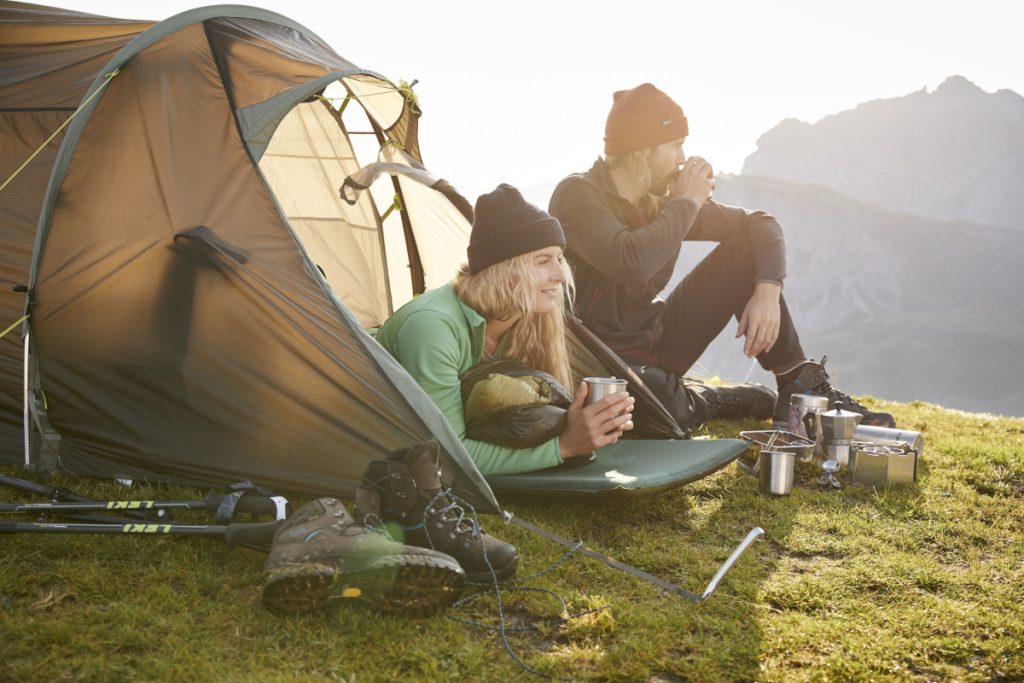
This is where wild camping is allowed in Germany
As with every rule, there are exceptions to wild camping. It is important to be aware of this, because there are a few possibilities in Germany to legally pitch your tent in the wilderness.
Mecklenburg-Western Pomerania
“Non-motorized hikers” are allowed by law to spend a night in a tent in the wild – provided no property rights are violated and you stay away from nature reserves and other protected areas.
Brandenburg
In Brandenburg, §22 of the Nature Conservation Act (Naturschutzgesetz) also states, “Hikers on foot, bicycle, horseback, and water may pitch tents in the open countryside for one night.”
Schleswig-Holstein
As part of the “Wild Schleswig-Holstein” program, the state has created nearly 20 overnight campsites in the countryside. The offer is only available to outdoor enthusiasts traveling by bike or on foot.
Palatinate Forest Nature Park
Since 2009, you have been allowed to wild camp here away from the huts and hiking trails, but only after prior registration and only in the areas designated for this purpose.
Nature Park Hohes Venn-Eifel
On a total of 18 hidden trekking sites in the middle of nature you can set up camp here after prior registration.
Saxon Switzerland
On the “Forststeig Elbsandstein” there are bivouac sites where you can spend the night during your trekking tour. However, you have to buy a ticket beforehand.
More and more tourist regions in Germany are catering to the needs of outdoor enthusiasts and allow camping on selected sites in nature. It’s worth doing a little research. Maybe you’ll discover an insider tip.
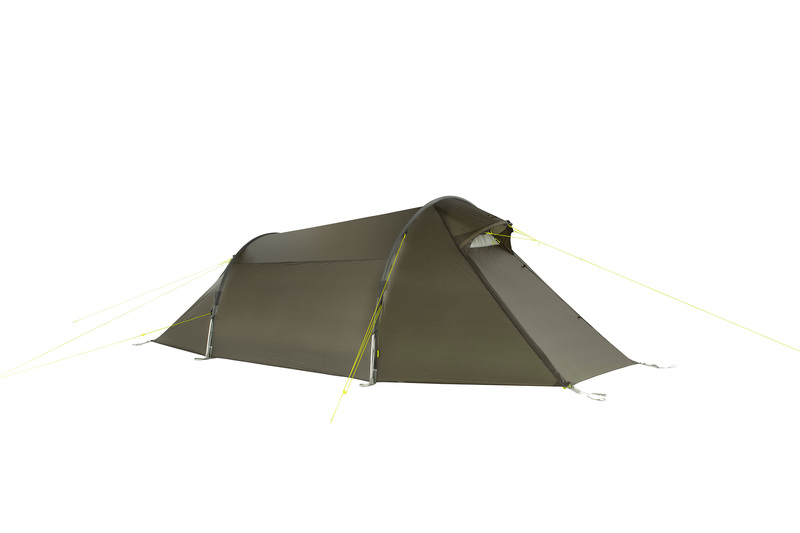
When every gram counts on a trekking tour, there’s no way around our compact 2-man Gargia 2 tent. Space-saving, lightweight and quick to set up.
Wild camping: This is how high the penalties are in Germany
The penalties for wild camping in Germany depend on the individual federal states. A distinction is made between camping in a nature reserve, a landscape conservation area or outside protected areas.
For example, if you camp in a nature reserve in Bavaria, you can expect to pay a fine of 50 to 500 euros. In a landscape conservation area it is 15 to 250 euros and outside protected areas 10 to 200 euros.
In Mecklenburg-Western Pomerania, camping in nature reserves can result in a fine of up to 5,000 euros.
The difference between a nature reserve and a landscape conservation area:
While nature reserves are intended to protect a landscape that has been little shaped by man, landscape protection areas are concerned with protecting nature cultivated by man in its idiosyncrasy and uniqueness. Landscape protection areas are therefore affected by fewer restrictions and usually cover a larger area. Often they also serve as a buffer zone for nature reserves. You can recognize the areas by a triangular sign with a green border with the inscription “Naturschutzgebiet” or “Landschaftsschutzgebiet”.
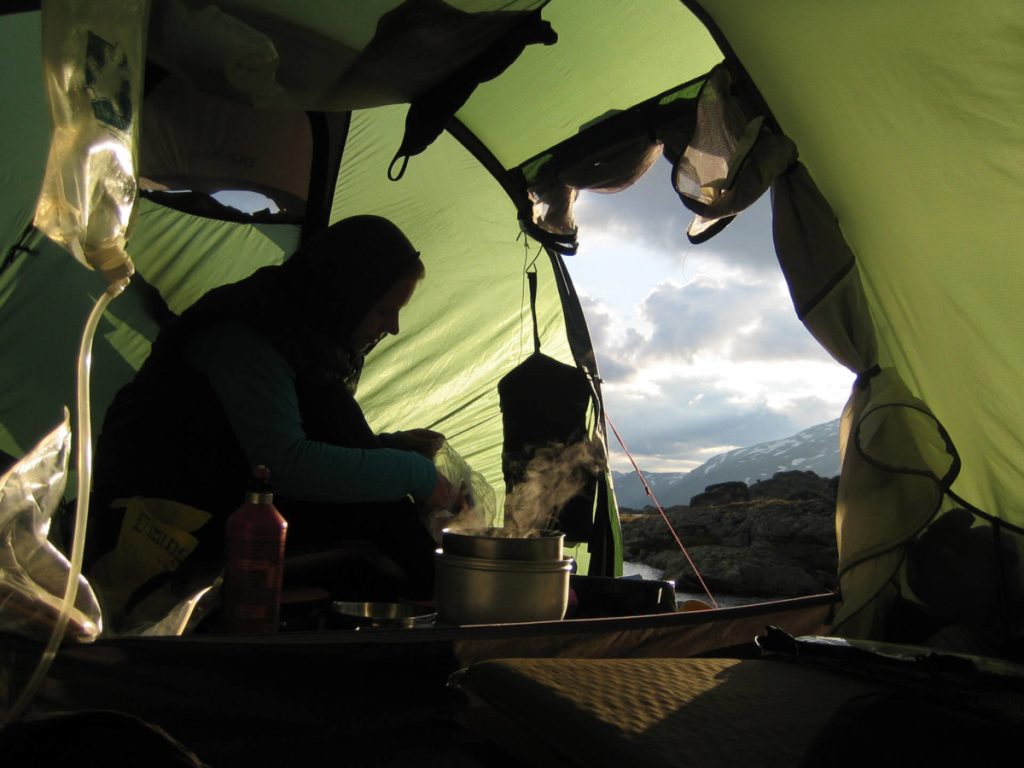
Wild camping in other European countries
Austria: In Austria, there are different regulations depending on the province. In most regions, however, camping is forbidden and is punished with high fines. Upper Austria is an exception: here you are allowed to pitch your tent above the tree line. In Vorarlberg, on the other hand, the respective mayor decides whether wild camping is allowed or not.
Switzerland: Wild camping is not generally prohibited here. However, there are countless restrictions that vary from canton to canton. The safest thing to do is to ask at the local tourist information office for the applicable rules.
Sweden, Finland and Norway: Thanks to the “Everyman’s Right,” you can pitch your tent – as long as you don’t violate any property rights – almost anywhere. It just has to be out of sight of residential buildings. Open fires are not allowed.
Italy: Wild camping is generally prohibited in Italy.
France: Wild camping is not allowed here either.
Spain: Wild camping is generally prohibited. In some regions you can apply for a permit.
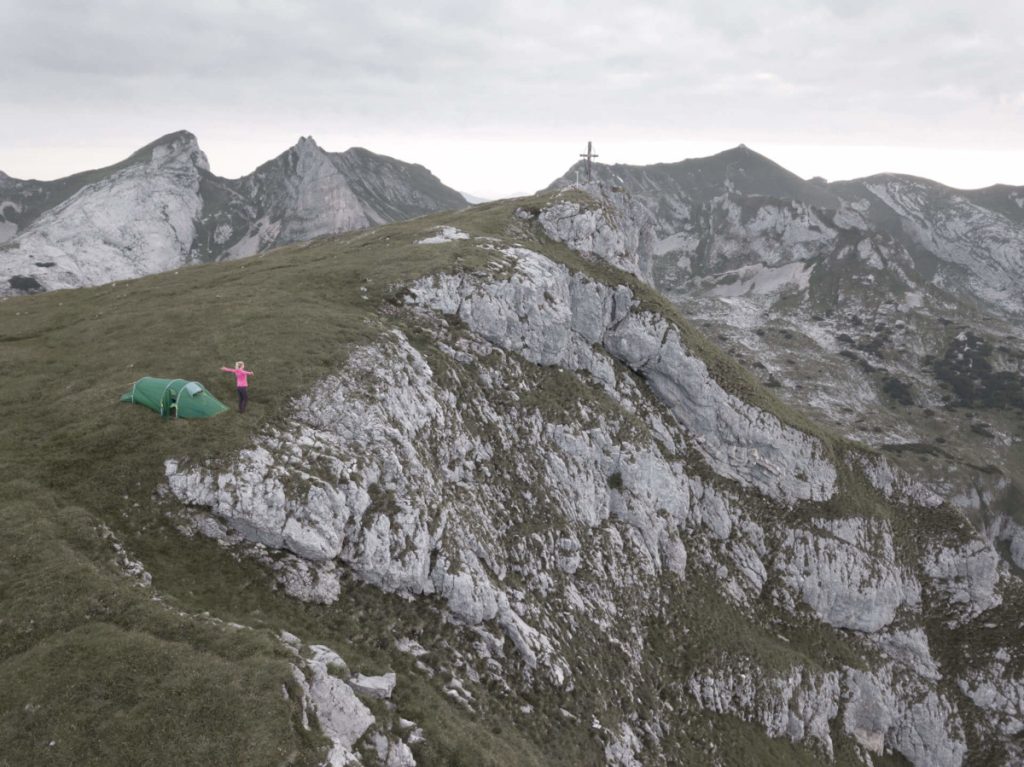
Rules of conduct for wild camping
Once you have found a place where you are allowed to spend the night, there are still a few things to keep in mind when camping in the wild, so as not to get into trouble or cause any yourself. The basic requirement is respect for nature and for other people who want to enjoy an undisturbed nature experience:
Avoid danger zones and protected areas
In addition to nature reserves and landscape conservation areas, this also includes hunting areas and places within sight of a hunter’s stand. Agriculturally used areas are just as taboo as the proximity to roads, residential buildings or villages.
Cook on a low flame
If you do not want to do without your hot meal, you should use a stable stove and make sure that the ground underneath is not damaged.
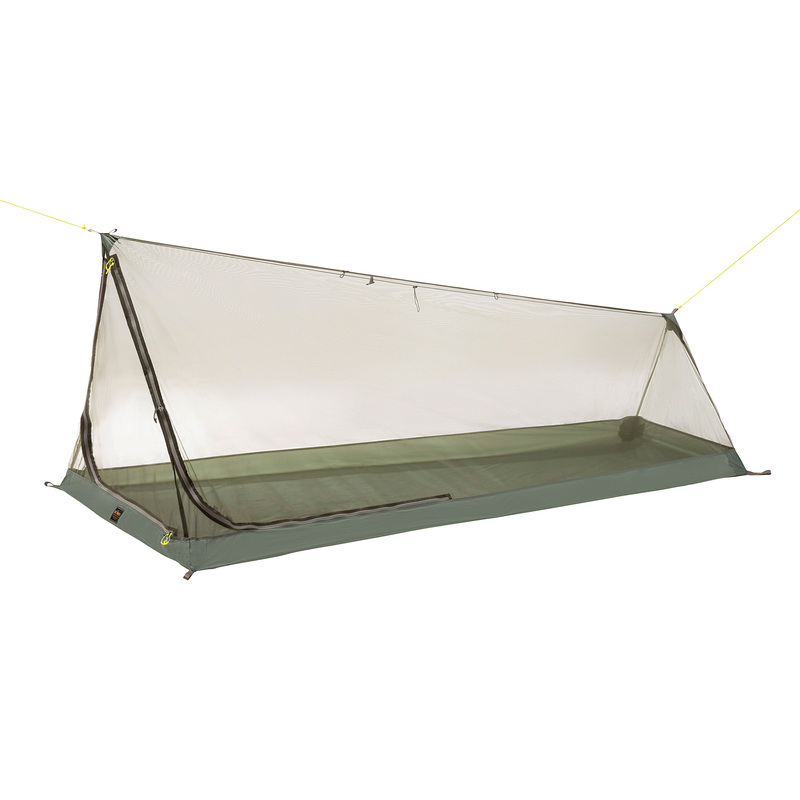
Ultralight mesh tent for protection against insects. The Single Mesh Tent can be pitched with hiking poles or attached to trees, for example, and offers an airy place to sleep.
Make yourself invisible
Tents in muted shades of green or brown are perfect for wild camping. You can become even more “invisible” by not using a tent at all. Try sleeping under a tarp or unrolling your sleeping bag right out in the open. Take all your garbage with you and leave the bivouac site as you found it.
Do not make noise
To avoid disturbing the animals in the area, keep quiet and avoid making noise.




